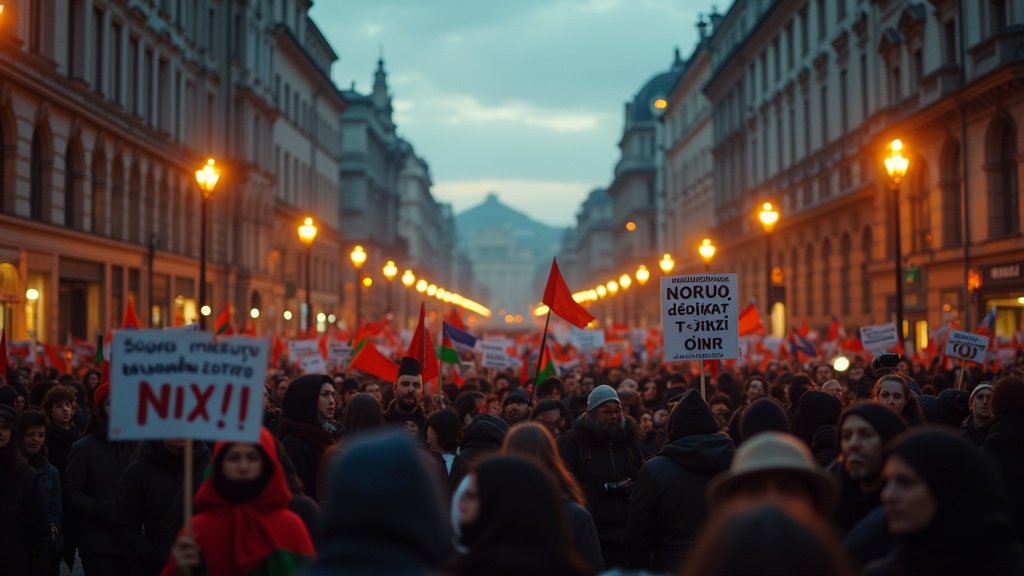In a dramatic display of public sentiment, Bulgaria witnessed widespread protests on May 31, 2025, as citizens voiced their opposition to the government’s plans to adopt the euro. The demonstrations, which took place in Sofia and other major cities, reflect deep-seated concerns about the nation’s economic future and the implications of integrating the euro.
Protests Against Euro Adoption
Thousands of Bulgarians took to the streets, united in their demand for a referendum on the proposed currency change. The protests, marked by their size and geographical spread, highlighted the significant public resistance to the government’s strategy. The timing of the demonstrations was particularly significant, occurring ahead of expected approval for Bulgaria to enter the eurozone. This suggests a concerted effort to influence the government’s decision-making process and potentially delay or even derail the adoption of the euro.
The protestors expressed concerns about the potential economic consequences of adopting the euro. These concerns are rooted in the experiences of other nations that have already adopted the currency. The anxieties include the loss of monetary policy control, which could limit Bulgaria’s ability to respond to economic crises, and the potential for inflation and increased prices. The demonstrators argue that a referendum is crucial to ensure that the public has a voice in such a significant decision, one that could profoundly impact the country’s economic trajectory.
Public Sentiment and Economic Future
The demonstrations served as a powerful indicator of public sentiment regarding Bulgaria’s economic future. The decision to adopt the euro represents a major step in Bulgaria’s integration into the European Union and the global economy. However, the protests make it clear that a substantial portion of the population harbors reservations about this integration and the potential impact on their lives.
The debate surrounding the euro extends beyond purely economic considerations, delving into questions of national identity and sovereignty. Some Bulgarians are concerned that adopting the euro could erode their country’s economic independence and reduce its ability to shape its own destiny. These concerns resonate with broader trends of populism and nationalism observed across Europe, where citizens often feel disconnected from decisions made by international institutions.
Political Ramifications and Future Outlook
The government’s response to the protests and the ultimate outcome of the euro adoption plan will undoubtedly shape the political landscape in Bulgaria. The government is now faced with the challenge of balancing its commitment to eurozone entry with the need to address the concerns of its citizens. The demand for a referendum puts direct pressure on the government to allow the public to have their voices heard.
The situation in Bulgaria serves as a case study of the complex challenges that nations face when navigating the economic and political realities of European integration. The protests underscore the importance of public participation in decision-making processes and the need for governments to carefully consider the potential consequences of major policy changes. The coming months will be crucial in determining whether Bulgaria will proceed with its plans to adopt the euro and how the government chooses to balance economic integration with the demands of its citizenry.
The demonstrations in Sofia and other major cities on May 31, 2025, are likely to have a lasting impact on Bulgaria’s political and economic future. The government will be closely watching the next steps, along with the potential repercussions associated with the protests.

